Dates are a popular fruit that is enjoyed around the world for their sweetness, chewy texture, and numerous health benefits. There are many varieties of dates available, but two common types that are often compared are dry dates and black dates. While both types are delicious and nutritious, they do have some key differences that set them apart. Dry dates are, as the name suggests, dehydrated versions of fresh dates. They have a wrinkled appearance and a slightly firmer texture compared to fresh dates. The drying process not only concentrates the flavors of the fruit but also extends its shelf life. Dry dates are typically sweeter than fresh dates, making them a popular choice for desserts and snacks. They are commonly used in baking, added to smoothies, or eaten on their own as a nutritious treat. On the other hand, black dates are fresh dates that have fully ripened on the palm tree before being harvested. These dates are dark brown to black in color and have a soft, chewy texture. Black dates are known for their rich, caramel-like flavor and high moisture content. They are often enjoyed as a snack, added to salads, or used in cooking to add natural sweetness to dishes. In terms of nutritional content, both dry dates and black dates are packed with essential vitamins, minerals, and fiber. Dates are a good source of energy due to their high natural sugar content, making them a great snack option for a quick pick-me-up. They are also rich in antioxidants, which help protect cells from damage caused by free radicals. Additionally, dates contain beneficial nutrients such as potassium, magnesium, and vitamin B6, all of which are important for overall health and well-being. One key difference between dry dates and black dates is their glycemic index (GI) value. The GI is a measure of how quickly a food raises blood sugar levels.
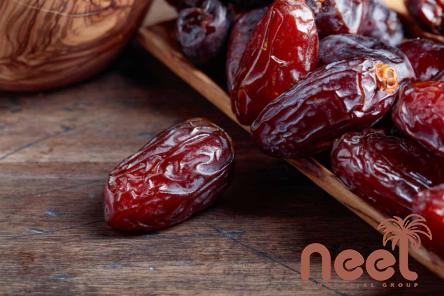
.
 Dry dates have a lower GI compared to black dates, which means they cause a slower and steadier increase in blood sugar levels. This makes dry dates a better choice for individuals who need to manage their blood sugar levels or those following a low-glycemic diet. In terms of taste and texture, dry dates are chewier and have a more concentrated sweetness compared to black dates. The dehydrated nature of dry dates intensifies their flavor and gives them a slightly tougher texture. On the other hand, black dates are softer, juicier, and have a more subtle sweetness that is complemented by a hint of caramel-like richness. The choice between dry dates and black dates ultimately comes down to personal preference and how you plan to use them in your culinary creations. When it comes to incorporating dry dates or black dates into your diet, there are countless ways to enjoy these delicious fruits. For a quick and healthy snack, simply eat a few dates on their own or pair them with nuts for a satisfying treat. You can also chop up dates and add them to oatmeal, yogurt, or cereal for a sweet and nutritious boost. Dates are a versatile ingredient in both sweet and savory dishes, so feel free to experiment with adding them to salads, stews, dressings, or desserts for a unique flavor profile. Overall, whether you prefer the intense sweetness and chewy texture of dry dates or the soft, caramel-like flavor of black dates, both varieties offer a plethora of health benefits and culinary possibilities. Incorporating dates into your diet can be a simple and delicious way to boost your nutrient intake and satisfy your sweet tooth. Whichever type of date you choose, you can be sure that you are enjoying a flavorful and nutritious fruit that has been cherished for centuries for its taste and wellness benefits.
Dry dates have a lower GI compared to black dates, which means they cause a slower and steadier increase in blood sugar levels. This makes dry dates a better choice for individuals who need to manage their blood sugar levels or those following a low-glycemic diet. In terms of taste and texture, dry dates are chewier and have a more concentrated sweetness compared to black dates. The dehydrated nature of dry dates intensifies their flavor and gives them a slightly tougher texture. On the other hand, black dates are softer, juicier, and have a more subtle sweetness that is complemented by a hint of caramel-like richness. The choice between dry dates and black dates ultimately comes down to personal preference and how you plan to use them in your culinary creations. When it comes to incorporating dry dates or black dates into your diet, there are countless ways to enjoy these delicious fruits. For a quick and healthy snack, simply eat a few dates on their own or pair them with nuts for a satisfying treat. You can also chop up dates and add them to oatmeal, yogurt, or cereal for a sweet and nutritious boost. Dates are a versatile ingredient in both sweet and savory dishes, so feel free to experiment with adding them to salads, stews, dressings, or desserts for a unique flavor profile. Overall, whether you prefer the intense sweetness and chewy texture of dry dates or the soft, caramel-like flavor of black dates, both varieties offer a plethora of health benefits and culinary possibilities. Incorporating dates into your diet can be a simple and delicious way to boost your nutrient intake and satisfy your sweet tooth. Whichever type of date you choose, you can be sure that you are enjoying a flavorful and nutritious fruit that has been cherished for centuries for its taste and wellness benefits.
..
 In addition to their taste and culinary versatility, both dry dates and black dates offer a range of health benefits that make them a valuable addition to any diet. Here are some of the key benefits associated with consuming dates regularly: 1. Rich in Fiber: Dates are an excellent source of dietary fiber, which is important for digestive health. Fiber helps to promote regular bowel movements, prevent constipation, and support a healthy gut microbiome. Including dates in your diet can help improve digestion and keep your digestive system functioning optimally. 2. Packed with Nutrients: Dates are a nutrient-dense fruit that provides a wide range of essential vitamins and minerals. These include potassium, magnesium, vitamin B6, and antioxidants such as flavonoids and carotenoids. These nutrients play crucial roles in maintaining overall health, supporting heart function, and boosting immunity. 3. Energy Boost: Due to their natural sugar content, dates are a quick and easy source of energy. Whether you need a pre-workout snack or a mid-afternoon pick-me-up, dates can provide a natural burst of energy to keep you going throughout the day. 4. Antioxidant Properties: Dates are rich in antioxidants, which help neutralize harmful free radicals in the body. By reducing oxidative stress, antioxidants found in dates can help protect cells from damage, lower inflammation, and reduce the risk of chronic diseases such as heart disease and cancer. 5. Bone Health: Dates contain minerals like calcium, phosphorus, and magnesium that are essential for maintaining strong and healthy bones. Regular consumption of dates can help support bone density, prevent bone-related diseases like osteoporosis, and promote overall skeletal health.
In addition to their taste and culinary versatility, both dry dates and black dates offer a range of health benefits that make them a valuable addition to any diet. Here are some of the key benefits associated with consuming dates regularly: 1. Rich in Fiber: Dates are an excellent source of dietary fiber, which is important for digestive health. Fiber helps to promote regular bowel movements, prevent constipation, and support a healthy gut microbiome. Including dates in your diet can help improve digestion and keep your digestive system functioning optimally. 2. Packed with Nutrients: Dates are a nutrient-dense fruit that provides a wide range of essential vitamins and minerals. These include potassium, magnesium, vitamin B6, and antioxidants such as flavonoids and carotenoids. These nutrients play crucial roles in maintaining overall health, supporting heart function, and boosting immunity. 3. Energy Boost: Due to their natural sugar content, dates are a quick and easy source of energy. Whether you need a pre-workout snack or a mid-afternoon pick-me-up, dates can provide a natural burst of energy to keep you going throughout the day. 4. Antioxidant Properties: Dates are rich in antioxidants, which help neutralize harmful free radicals in the body. By reducing oxidative stress, antioxidants found in dates can help protect cells from damage, lower inflammation, and reduce the risk of chronic diseases such as heart disease and cancer. 5. Bone Health: Dates contain minerals like calcium, phosphorus, and magnesium that are essential for maintaining strong and healthy bones. Regular consumption of dates can help support bone density, prevent bone-related diseases like osteoporosis, and promote overall skeletal health.
…
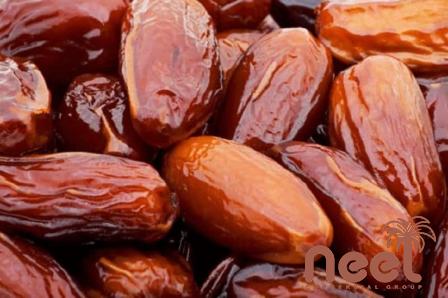 6. Heart Health: The potassium content in dates is beneficial for heart health as it helps regulate blood pressure and maintain heart function. Including dates in a balanced diet can help lower the risk of cardiovascular disease and promote cardiovascular well-being. 7. Weight Management: Despite their sweetness, dates can be a good addition to a healthy weight loss or weight management plan. Their high fiber content helps promote feelings of fullness and satiety, which can aid in controlling appetite and reducing overall calorie intake. 8. Skin Health: The antioxidants and vitamins in dates can help improve skin health and promote a radiant complexion. Consuming dates regularly may help reduce signs of aging, protect against sun damage, and promote skin elasticity and hydration. Whether you choose to enjoy dry dates or black dates, incorporating these nutritious fruits into your diet can offer a wide range of health benefits. From supporting digestion and boosting energy levels to promoting heart health and enhancing skin health, dates are a versatile and nutrient-rich food that can be enjoyed in a variety of ways. In conclusion, the choice between dry dates and black dates ultimately boils down to personal preference and how you plan to use them in your culinary creations. Both varieties offer unique flavors, textures, and nutritional profiles that can add depth and richness to a wide range of dishes. Whichever type of date you choose, you can be sure that you are indulging in a delicious and wholesome fruit that has stood the test of time as a beloved ingredient in cuisines across the globe.
6. Heart Health: The potassium content in dates is beneficial for heart health as it helps regulate blood pressure and maintain heart function. Including dates in a balanced diet can help lower the risk of cardiovascular disease and promote cardiovascular well-being. 7. Weight Management: Despite their sweetness, dates can be a good addition to a healthy weight loss or weight management plan. Their high fiber content helps promote feelings of fullness and satiety, which can aid in controlling appetite and reducing overall calorie intake. 8. Skin Health: The antioxidants and vitamins in dates can help improve skin health and promote a radiant complexion. Consuming dates regularly may help reduce signs of aging, protect against sun damage, and promote skin elasticity and hydration. Whether you choose to enjoy dry dates or black dates, incorporating these nutritious fruits into your diet can offer a wide range of health benefits. From supporting digestion and boosting energy levels to promoting heart health and enhancing skin health, dates are a versatile and nutrient-rich food that can be enjoyed in a variety of ways. In conclusion, the choice between dry dates and black dates ultimately boils down to personal preference and how you plan to use them in your culinary creations. Both varieties offer unique flavors, textures, and nutritional profiles that can add depth and richness to a wide range of dishes. Whichever type of date you choose, you can be sure that you are indulging in a delicious and wholesome fruit that has stood the test of time as a beloved ingredient in cuisines across the globe.
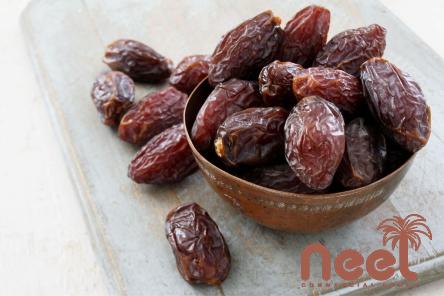

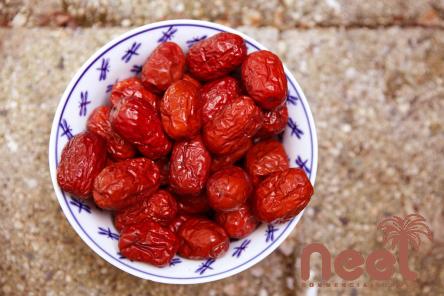
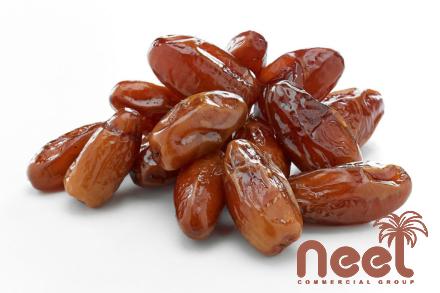

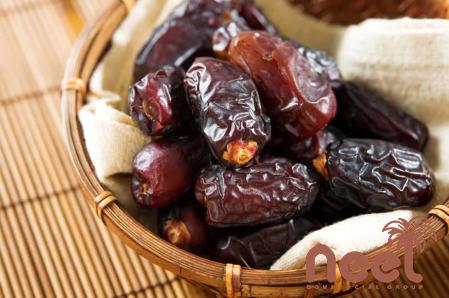
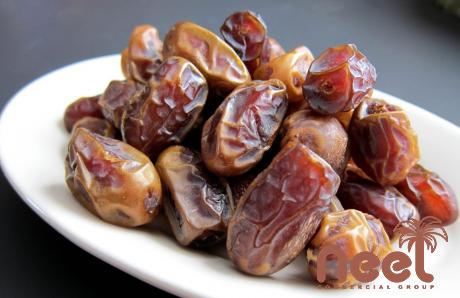
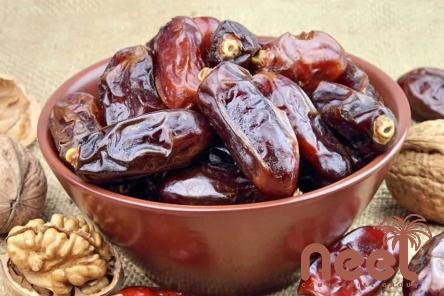
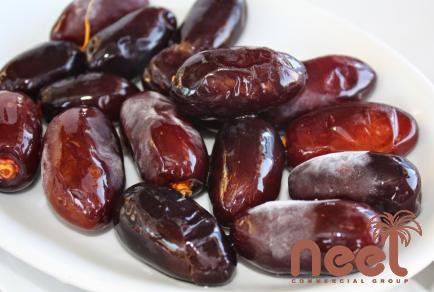
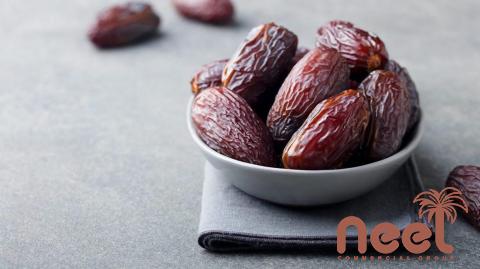
Your comment submitted.